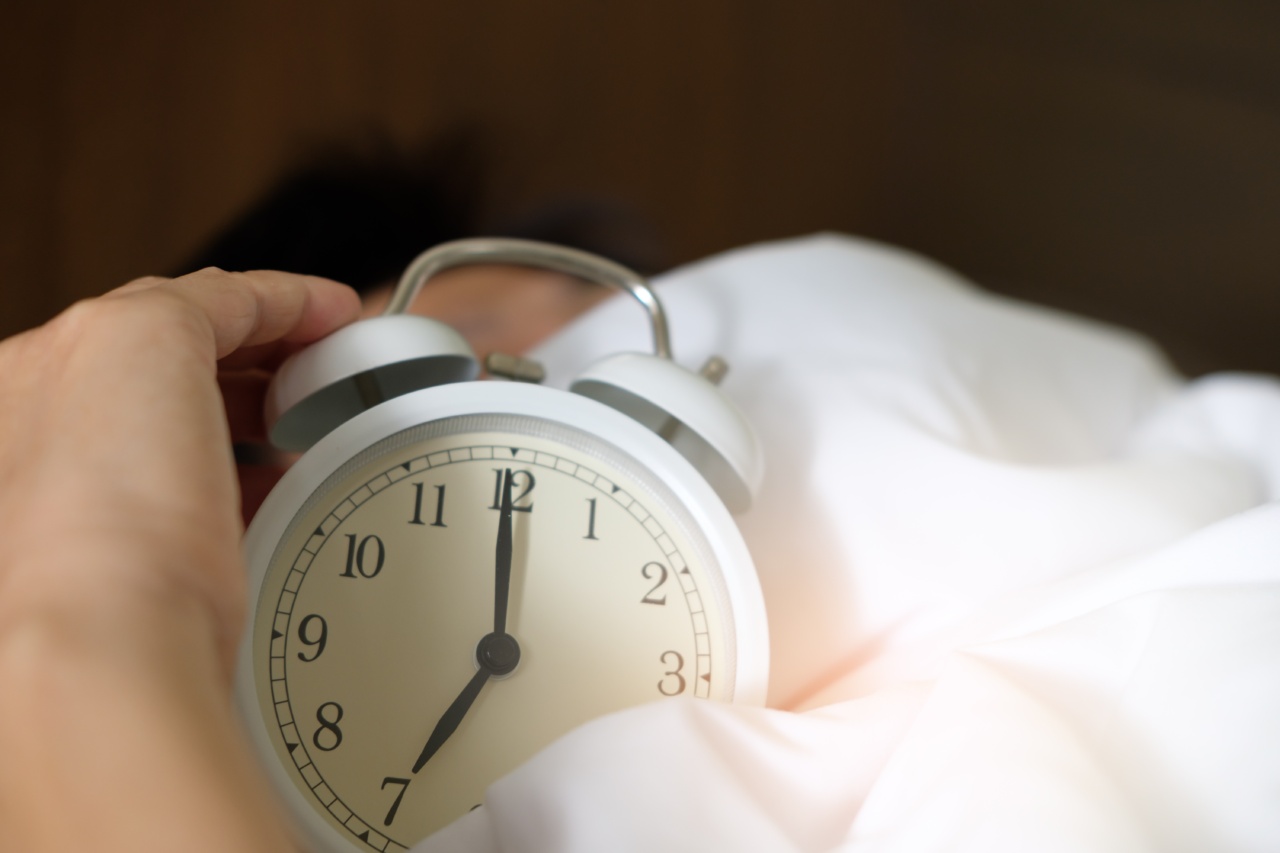Many of us rely on alarm clocks to wake us up in the morning.
However, have you ever experienced the strange phenomenon of waking up naturally a few minutes or even hours before your alarm goes off? While it may seem like a mere coincidence, this occurrence can actually reveal important insights about your health. In this article, we will explore what waking up earlier than your alarm clock tells you about your well-being and discuss the potential implications.
The Influence of Circadian Rhythm
Our bodies are regulated by a natural internal clock known as the circadian rhythm. This rhythm governs various physiological processes, including our sleep-wake cycle.
The circadian rhythm is influenced by external factors such as light and darkness, which help regulate the secretion of melatonin—a hormone responsible for promoting sleep.
Waking up earlier than your alarm may indicate that your body’s circadian rhythm is in sync with the natural light-dark cycle.
It suggests that your body has adjusted to its optimal sleep-wake pattern, allowing you to awaken naturally at the most suitable time.
The Role of Sleep Quality
The quality of your sleep plays a vital role in determining how refreshed you feel upon awakening. Waking up before your alarm may be an indication that the quality of your sleep is adequate.
If you consistently wake up feeling alert and well-rested, it signifies that you are obtaining sufficient deep and REM (rapid eye movement) sleep stages. These are the crucial phases of sleep necessary for physiological and cognitive restoration.
Waking up before your alarm can be a testament to the overall effectiveness of your sleep routine and the quality of rest you are receiving each night.
Possible Benefits of Waking Up Earlier
Being an early riser can have several potential benefits for your health and well-being. Let’s explore some of these advantages:.
Improved Productivity
Studies have shown that individuals who wake up earlier tend to be more productive and achieve greater success in various areas of life.
Early mornings provide uninterrupted time that can be utilized for planning, goal setting, meditation, or engaging in other activities that contribute to personal growth and development.
Establishing Morning Routines
Waking up earlier than your alarm can give you the opportunity to establish and follow a consistent morning routine.
Morning routines have been linked to improved mental and emotional well-being, increased productivity throughout the day, and better overall life satisfaction.
Enhanced Mental Health
Early rising has been associated with a lower risk of developing mental health issues such as depression and anxiety.
The calmness and quietness of the early morning hours, combined with solitude, can provide a conducive environment for introspection, reflection, and mindfulness practices.
Increased Physical Activity
Individuals who wake up earlier often have more time to engage in physical exercise. Exercise is essential for maintaining cardiovascular health, managing weight, enhancing cognitive function, and reducing the risk of chronic diseases.
Factors that Influence Waking Up Earlier
While waking up earlier than your alarm clock can suggest positive aspects of your health, there are several factors that may influence this behavior. Let’s delve into some potential causes:.
Natural Body Clock
Each person has a unique internal body clock, also known as the chronotype. Some individuals have a natural inclination towards waking up earlier, while others are predisposed to staying up late.
Your natural body clock, which is influenced by genetics, may play a significant role in determining your waking pattern.
Lifestyle Choices
Lifestyle choices, such as maintaining a consistent sleep schedule, avoiding excessive caffeine consumption, and establishing healthy nighttime routines, can contribute to waking up earlier.
By prioritizing good sleep hygiene practices, you can encourage your body to develop a habitual waking pattern aligned with your desired schedule.
Sleep Disorders
In certain cases, waking up earlier than your alarm clock may be a symptom of an underlying sleep disorder.
Conditions like sleep apnea, insomnia, and restless legs syndrome can disrupt the sleep cycle and cause individuals to wake up earlier than intended. If you consistently experience difficulties sleeping or excessive daytime sleepiness, it is advisable to consult a healthcare professional for further evaluation.
Conclusion
Waking up earlier than your alarm clock can provide valuable insights into your sleep quality, overall well-being, and lifestyle choices.
It suggests that your circadian rhythm is aligned with the natural light-dark cycle and that you are obtaining adequate restorative sleep. Being an early riser offers potential benefits such as increased productivity, establishing morning routines, enhanced mental health, and increased physical activity.
However, it is important to consider individual factors such as your natural body clock and potential sleep disorders that may influence waking up earlier.
By understanding the reasons behind this occurrence, you can optimize your sleep routine and make intentional choices to enhance your overall health and wellness.































